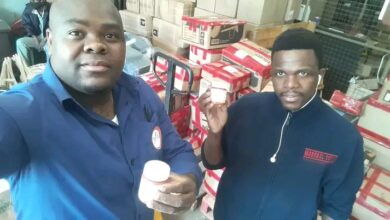South African small businesses could become the lifeblood of e-commerce’s meteoric rise

Small and medium-sized enterprises (SMEs) represent a staggering 98% of business in South Africa today. The fact that SMES also employ between 50 and 60% of the country’s workforce and are responsible for a quarter of the job growth in the private sector, according to global management consultant McKinsey & Company, means they truly are the backbone of the South African economy.
Yet it is SMEs that have borne the brunt of the Covid-19 pandemic. Lockdown regulations have wreaked havoc, with the cash flows essential to sustaining smaller businesses completely drying up in some instances. Tragic stories of once-thriving businesses having to close their doors litter the financial landscape, and certainly the virus could not come along at a worse time for owners already grappling with a precarious economy prior to its arrival.
But there has also been a significant silver lining. Despite questions over the country’s technological capability, thousands of small businesses have found ways to maximise the digital space to not only weather the storm, but thrive in one of the most challenging trade climates in history.
They have done so by recognising the potential of successful ecommerce websites like bidorbuy – an approach very much aligned with McKinsey’s own strategic thinking.
“Digital and new technologies create an opportunity for SMEs to enhance their reach and efficiency at lower costs, overcoming the scale disadvantage they have relative to larger players,” the consultancy group says.
“SMEs can focus on key areas of competitiveness in their value chain, product, and/or operations and identify the best technology levers to enhance competitiveness.”
While bidorbuy CEO Craig Lubbe is unable to divulge specifics on how many SMEs currently are registered on the platform, he confirms that there are thousands of active SMEs using the platform each month.
“Many of these businesses have been attracted to the online world out of necessity due to lock-down restrictions. This has opened up our platform to wonderful diversity in both product offering and the individuals behind it all,” Lubbe said.
There is no doubt in his mind that South Africans have undergone a form of “digital-transformation” with the arrival of Covid-19. Schools and other places have already made the transition and “this includes businesses too”.
“Many businesses have had their first experience in online trade in the past year and most have realised there is nothing mystical or difficult about it. These businesses have opened up their offering to more than just local trade and will likely benefit immensely as more and more South Africans move to shop online.”
One of the key drivers to SMEs’ digital success is knowing where to access their audience. Brands are trusted, and because bidorbuy has an established online presence and has built a loyal buyer base, it stands to reason that they channel their commerce through such sites.
“This translates to thousands of sales across 32 product categories every month. bidorbuy integrates directly with websites and can update its stock in real time. For sellers selling on multiple platforms, this makes the bidorbuy channel a dream to work with,” Lubbe said.
Traders in consumer electronics, home & garden items and collectables have fared exceptionally well on the platform to date, and Lubbe hopes to build on this success in the grocery and household space.
That said, he also points out that the niche market represent a huge growth opportunity for smaller businesses, as there will always be people looking for items they struggle to find elsewhere.
Titos Mafa is the owner of ebudgetdeals, a seller/SMME on the bidorbuy platform since 2011.
His business designs, manufactures and sells high quality leather bags, an operation that has gone from strength to strength “mainly due to our family having the right skill sets”.
“Selling on bidorbuy has the advantage of reaching a wide audience with minimum effort. Our goods are available online for sale 24 hours a day and all year round. We use newsletters and other marketing tools on bidorbuy and this has accelerated our growth exponentially,” Mafa said.
Admittedly online shopping was still a relatively new concept to most people, but as it has grown so customer trust has been established.
“We continued focusing on providing good customer service and delivering goods on time, thereby building lots of positive feedbacks from buyers.
“SMMEs must identify a real need in the market to be successful selling online. To be successful selling online, one has to differentiate your product line, focus on good customer service and deliver what you promise.”
Hilton Edwards, the owner of Artworks Online, a business specialising in paintings, sculptures and prints, has also enjoyed success thanks to bidorbuy.
He has been on the platform for 12 years.
“We saw this as a great opportunity and the future of more potential sales outside of a brick and mortar gallery where there are limited operating hours and clients. Our client base is incredibly diverse now, including a professor in Japan, a South African who relocated to Taiwan and a farmer in a small town in Karoo,” Edwards said.
“We have seen that we have steadily grown on bidorbuy and we see that SA buyers are becoming more comfortable and secure with buying art online. Our sales also increased during the Covid lockdown period.”
These days Edwards actually prefers selling online because of the considerable exposure.
“I have tried other art-selling websites, but bidorbuy gets 10/10 and is the only SA website where we sell art online. My best advice to others pursuing online sales is that the item description must be accurate, as must the returns policy and shipping terms.
“Images of items must also be neatly photographed. One must provide as much information as you can on the listing, so that the buyer can simply click, purchase and pay.”

